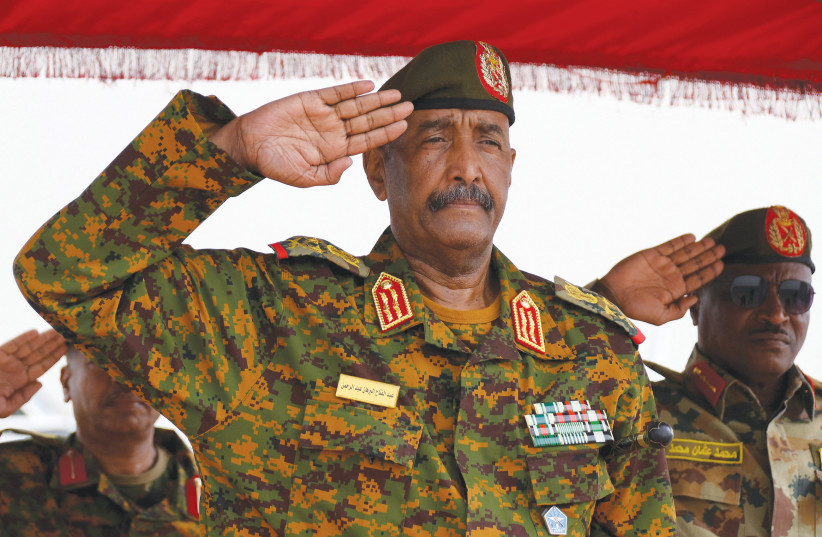Six months of civil war in Sudan could be reaching a new phase, as the military head appears to be cementing control – at least internationally.
Abdel Fattah al-Burhan, chairman of the Sovereign Council, which controls the armed forces, is set to go to the UN General Assembly on or around September 19. In recent weeks, he has made major strides abroad, visiting Egypt, where he met with the Egyptian President Abdel Fattah al-Sisi. Both men have a strong army background, and Sisi has been in power since 2013.
This week, US Ambassador to the UN Linda Thomas-Greenfield visited Chad to witness and meet refugees from the fighting in Sudan.
“The United States is providing nearly $163 million in additional humanitarian assistance for the people of Sudan and neighboring countries,” she announced on her visit.
The US Treasury Department sanctioned Abdelrahim Hamdan Dagalo, the leader of one of the sides, accusing his group, the Rapid Support Forces (RSF), of abuses against civilians, something that both sides have been accused of.
Burhan traveled on to Doha on “an official visit,” Al-Ain media reported, adding that he is there for discussions with the Emir of Qatar “to address the course of bilateral relations between the two countries, ways to enhance them, issues of common interest, and developments in the situation in Sudan.”

The fighting in Sudan
When fighting began in Sudan in April, two armed factions – the army and the RSF – began fighting for control. It now appears that the US and the international community are moving to side with the army.
Qatar has also played a similar role in other places, such as hosting the Taliban and brokering a deal with the US that saw the Taliban return to power.
Once Doha makes a move, it often is with the blessing of other key countries and represents a new phase in whatever is happening. Qatar, for instance, also sent an envoy to Gaza this week.
In the past, Doha has backed groups linked to political Islam or the Muslim Brotherhood. These days it is more cautious, but its overall policy is the same. Qatar and Turkey often work together closely on foreign-policy decisions.
The RSF in Sudan are led by Muhammad Hamdan Dagalo, known as Hemedti. He has close ties to tribal fighters, who have ties across the Sahel. Dagalo is seen as leading groups that abuse human rights, however, and he also may be tied to either Russia or other countries in the region.
This is not a simple story, but the West would prefer groups that have no connections to Moscow. As such, the army in Sudan has worked abroad to paint the RSF as more extreme and pro-Moscow.
Dagalo comes from a humble background, but he has his own agenda. The army is also sometimes critiqued for having connections to the former regime of Omar al-Bashir. Bashir was accused of genocide.
The Saudis have worked with the US to secure ceasefires in Sudan. Much of the international community has been absent, however, and it has ignored the Sudan conflict. Now, things may be changing.
